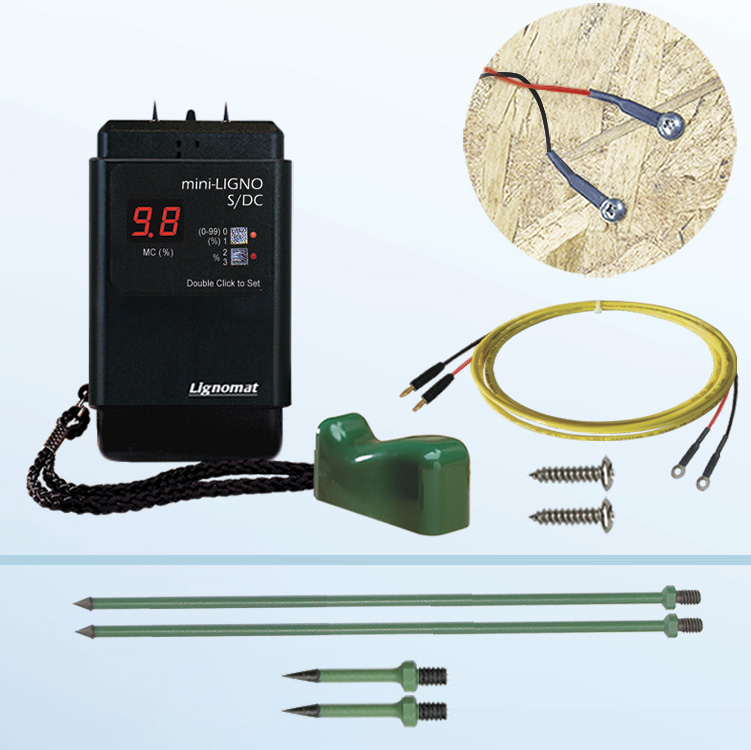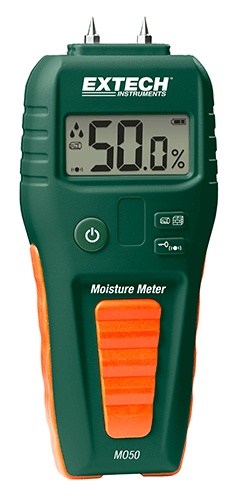How a Moisture Meter Can Boost Your Building And Construction Tasks and Stop Damage
How a Moisture Meter Can Boost Your Building And Construction Tasks and Stop Damage
Blog Article
The Ultimate Overview to Wetness Meters: A Comprehensive Review and How They Can Conserve You Money
Dampness meters serve as essential tools in detecting and keeping an eye on moisture content in products, aiding in stopping expensive problems and making sure the quality of products. Comprehending the subtleties of various types of dampness meters, their applications, and the prospective cost-saving advantages they supply can be a game-changer for experts and organizations alike.
Kinds Of Moisture Meters
Different types of wetness meters are readily available for various applications in various industries. One common type is the pin-type wetness meter, which determines the electric resistance in between 2 pins put right into a material. This kind appropriates for wood, drywall, and other building products. Pinless wetness meters, on the various other hand, usage electro-magnetic sensing unit plates to scan a larger area without triggering damage to the product's surface area. Moisture Meter. These meters are suitable for promptly assessing wetness levels in big locations such as wall surfaces and floorings.

Infrared wetness meters gauge the thermal residential properties of a material to identify its dampness content non-invasively, making them beneficial for applications where pin or pinless meters might not be suitable. Understanding the different kinds of moisture meters offered can aid markets pick the most suitable device for their particular dampness measurement requirements.

Advantages of Utilizing Dampness Meters
Moisture meters offer invaluable benefits in precisely examining and keeping track of moisture degrees in varied materials and environments. One of the primary advantages of utilizing wetness meters is the prevention of possible damages caused by excess moisture.
Additionally, utilizing dampness meters can lead to raised power efficiency. In agricultural setups, wetness meters play a vital role in maximizing plant returns by enabling farmers to monitor soil wetness levels and make educated watering choices.
How to Select the Right Moisture Meter
When selecting a moisture meter, it's essential to guarantee that the meter is ideal for the particular material you will be screening. Different products have varying electrical properties that can impact wetness analyses, so picking a meter made for your material is essential for precise outcomes. By meticulously reviewing these factors, you can pick a dampness meter that meets your needs and provides exact moisture dimensions for your tasks.
Proper Techniques for Dampness Meter Use

Expense Financial Savings Through Wetness Meter Applications
Exactly how can the strategic utilization of dampness meters lead to considerable price savings across numerous markets? Wetness meters play a crucial role in expense financial savings by protecting against potential damages and ensuring high quality control in different sectors. In the agriculture industry, moisture meters aid in figuring out the ideal time for gathering crops, avoiding excess or over-drying wetness that can affect the end product's top quality. This accurate tracking helps farmers stay clear of unneeded losses and maximize their return.
Similarly, in building and construction, wetness meters help stop pricey damages by discovering wetness levels in structure products, such as wood or concrete, which can lead to structural problems otherwise resolved immediately. By recognizing problem areas early on, professionals can take corrective actions to prevent extensive repair services or substitutes, ultimately conserving money and time.
Furthermore, in the food handling sector, dampness meters are necessary for monitoring product top quality and ensuring compliance with safety guidelines. By properly measuring wetness web content in food, manufacturers can stop wasting, preserve freshness, and lower waste, resulting in substantial cost savings. On the whole, the strategic application of moisture meters is a useful financial investment that can try this site result in substantial cost decreases and improved performance throughout numerous markets.
Verdict
To conclude, dampness meters are useful devices for identifying and determining dampness levels in numerous materials. By making use of the right dampness meter and adhering to correct strategies, individuals can effectively stop expensive damages triggered by excess dampness. Buying a high quality moisture meter can lead to considerable cost savings in the future by determining potential problems at an early stage and making it possible for timely remediation. Eventually, dampness meters are view it necessary tools for maintaining the stability and long life of frameworks and materials.
Dampness meters serve as important tools in spotting and keeping an eye on moisture content in materials, aiding in avoiding pricey damages and making sure the top quality of products. Infrared dampness meters gauge the thermal properties of a material to identify its dampness web content non-invasively, making them useful for applications where pin or pinless meters may not be ideal.Dampness meters use indispensable advantages in accurately evaluating and keeping track of wetness levels in diverse products and environments. In agricultural setups, moisture meters play an essential duty in enhancing crop returns by making it find more info possible for farmers to monitor soil moisture degrees and make educated irrigation choices.In conclusion, dampness meters are important devices for determining and spotting moisture levels in numerous materials.
Report this page